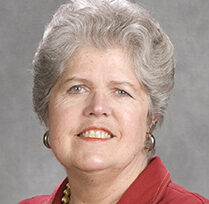Christian nationalism has posed a continuing threat to our constitutional values over the last several years, and the threat is growing. Some of its adherents sincerely believe in its tenets, whereas others adopt it for political advantage. Many people are not familiar with Christian nationalism, but it is a movement of which all Americans should at least be aware.
Nationalism is not simply patriotism, or love of country and its founding documents. Nationalism in one interpretation is the idea that nations are internally coherent cultural units that must preserve their cultural inheritance. Traditional conservatives tend to champion limited government. Christian nationalists (typically conservative), however, want the government itself to exert jurisdiction over and to champion a particular kind of culture. They adhere to a literal interpretation of the Bible — which is itself but one interpretation — and want to impose it upon others. They take an apocalyptic view of social decline, arguing that deviations from a traditional way of life presage the decline of the U.S. They tend to valorize military power not only against threats to national security, but also implicitly against those who might threaten our cultural inheritance.
Sociologists have shown that Christian nationalists trend in the opposite direction on various social issues from many active religionists. Personally devout Christians are less likely, for example, to say that Middle Eastern refugees are a terrorist threat and more likely to believe that we should have stricter gun laws, whereas Christian nationalists trend conversely. Traditional appeals to religion may involve a plea to live out transcendent Christian values of love, mercy, or justice. Appeals to Christian nationalism tend to involve a call to arms against a perceived threat.
Christian nationalists are suspicious of newcomers to the U.S. who are too different (by their definition) in ethnicity, race, or religion. The “real Americans” are most often native-born white Protestants. They are suspicious even of Christian outgroups such as Mexican immigrants. They believe that nations need strong predominant cultures if they are to survive and flourish. Because the U.S. has been dominated by Anglo-Protestant or European Christian culture, this is a necessary condition for our continuing sustenance. Therefore, Christianity should maintain its dominant cultural framework and the government should actively defend it, they say.
Paul Miller, a self-identified Christian conservative but trenchant critic of Christian nationalism, observes, “Nationalism amounts to Jim Crow on a global scale, an insistence that cultural majorities have a presumptive right to defend their culture with the power of the state.” Christian nationalists as well as some white evangelicals’ regard for Anglo-Protestant culture can sometimes extend to either implicit or overt racism. Many appear not to recognize the reality of intergenerational racial inequality or of systemic racism. They view racism as a matter of personal sin or animus rather than as also having institutional components. Growing diversity has produced a decline in conservative white Christian power. Therefore, some conservative white Christians want to convert their identity into an official state creed, and to use the government to maintain and solidify its privileges.
Civic republicanism, an ancient tradition going back to the Roman republic, holds that the development and sustenance of civic virtue is necessary to sustain political liberty. The Federalist Papers, in fact, contain references to the importance of civic virtue. But for much of the Christian right, only Christian values can sustain civic virtue. Although I myself am an active religionist (Episcopalian), we all need to be aware that civic virtue as well as other positive attributes that contribute to the strength of our constitutional system can and should be inclusive rather than exclusive.
— Emily Gill is Caterpillar Professor of Political Science Emerita, Bradley University

